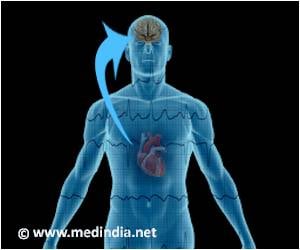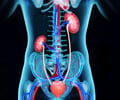People with chronic kidney disease who also have atrial fibrillation are at an increased risk of developing kidney failure.

Doctors have known that patients with chronic kidney disease or end-stage renal disease commonly have atrial fibrillation and as a result are more likely to have a stroke or to die. However, the long-term impact of atrial fibrillation on kidney function among patients with known chronic kidney disease has been unknown.
The new study involved 206,229 adults with chronic kidney disease who were drawn from members of Kaiser Permanente Northern California, a large integrated health care delivery system. Over the course of about five years, approximately 16,400 patients developed atrial fibrillation, and those who did were 67 percent more likely to progress to end-stage renal disease compared with patients who had chronic kidney disease but did not develop atrial fibrillation
"These novel findings expand on previous knowledge by highlighting that atrial fibrillation is linked to a worse kidney prognosis in patients with underlying kidney dysfunction," said kidney specialist Nisha Bansal, MD, an assistant professor in the Division of Nephrology at UCSF.
"There is a knowledge gap about the long-term impact of atrial fibrillation on the risk of adverse kidney-related outcomes in patients with chronic kidney disease," said senior author Alan S. Go, MD, director of the Comprehensive Clinical Research Unit at the Kaiser Permanente Division of Research.
"This study addresses that gap and may have important implications for clinical management by providing better prognostic information and leading to future work determining how to improve outcomes in this high-risk group of patients," the researcher added.
Advertisement
Neither do they yet know the extent to which treating atrial fibrillation will improve outcomes for people with chronic kidney disease.
Advertisement
Source-ANI















